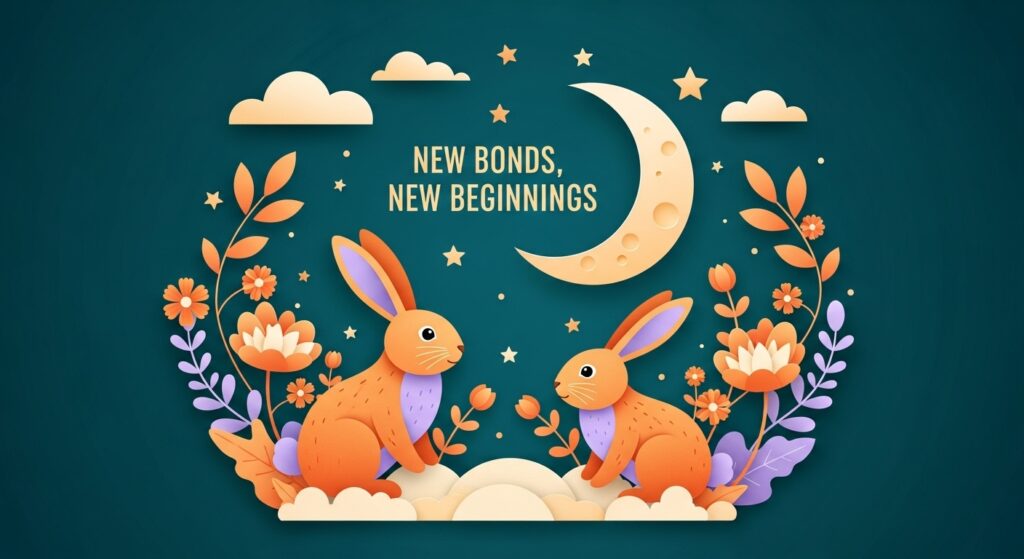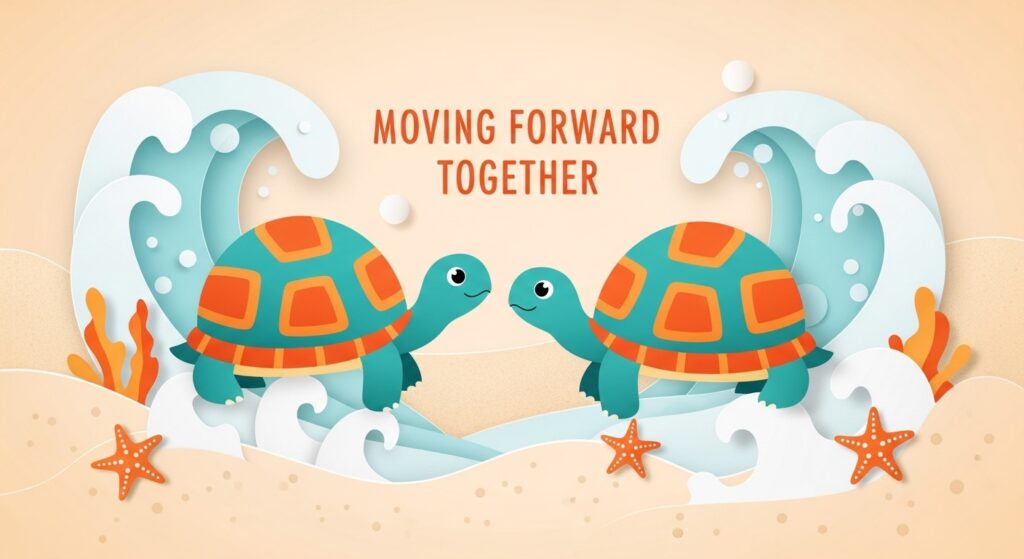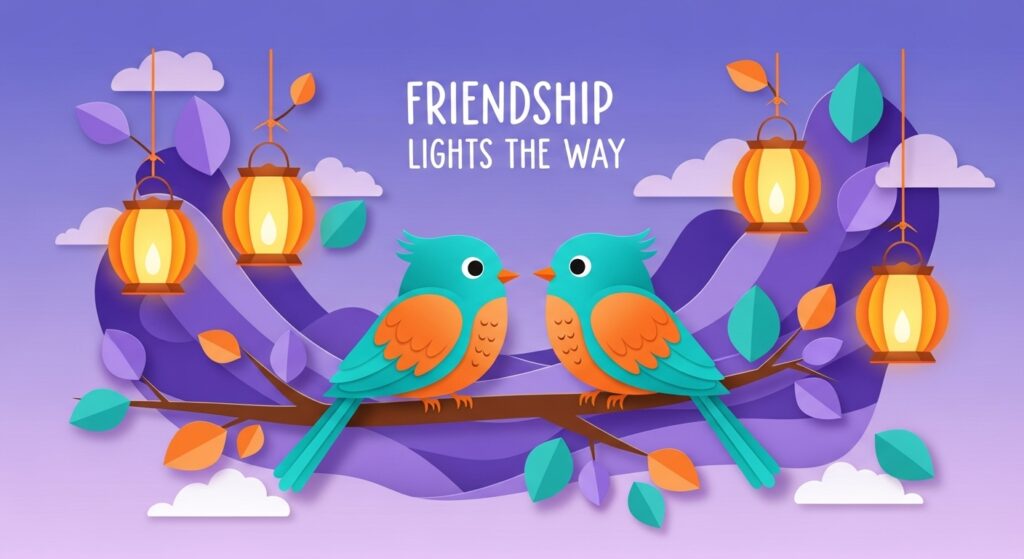Making Friends After Breakup: Build Real Bonds Beyond Your Story
Building Connections: Introduction
Feeling isolated or lost after a breakup is a common experience, but it doesn’t have to define your future connections. This guide is for anyone ready to move forward, offering practical ways for building connections after breakup and making friends after breakup. We’ll show you how to form genuine bonds based on shared interests and present experiences, fostering a true sense of belonging and supporting your personal growth.

Why Building Connections After Breakup Can Feel Daunting
The immediate aftermath of a breakup can make the idea of forming new friendships, let alone romantic connections, feel incredibly challenging. You are not alone if you sense a heavy weight when contemplating reaching out to new people or engaging in social settings. This hesitation is not a flaw; it is a natural response to significant emotional upheaval. It signals that your mind and heart are trying to protect you, even if it feels isolating.
One major hurdle is the sheer exhaustion. Your emotional resources are likely depleted from processing the breakup itself. The thought of investing energy into new conversations, making small talk, and potentially sharing personal details can feel like an impossible task. There is also the anxiety of vulnerability. After experiencing a deep wound, the instinct is to protect yourself, building walls rather than bridges. The idea of letting someone new into your inner world, where they might see your pain or misunderstand your past, can be terrifying. You crave connection, yet fear another disappointment. This can lead to a profound feeling of being stuck, unable to move forward in building new relationships.
Furthermore, a significant relationship often shapes a large part of your identity and social circle. When that relationship ends, you might feel a profound sense of loss beyond just the partner – you might feel like you have lost ‘yourself’ or your place in the world. This makes navigating new social scenes feel awkward, as if you are relearning how to be just ‘you’ outside of a couple. The concern about how much to share about your past relationship can also be paralyzing. You do not want to overshare and appear stuck, but you also want to be authentic. This is precisely where understanding and setting healthy boundaries becomes crucial. Learning to define what you are comfortable with, and when, helps protect your peace while still allowing genuine interaction.
This period is not just about moving past something; it is also about moving towards a stronger, more self-aware version of yourself. It is a chance for personal growth where you get to decide what kind of relationships you truly want. Practicing effective communication ensures that as you connect with others, you can express your needs and limits clearly, fostering trust and respect from the start. Taking small steps, focusing on genuine interest, and giving yourself grace can help rebuild your sense of belonging and control in your social world. It allows you to redefine what connection means for you now, on your terms.
Key Points
- Emotional exhaustion and the natural instinct to protect oneself make forming new connections feel overwhelming after a breakup.
- A past relationship often shapes identity and social circles, making new social navigation feel awkward and challenging.
- Anxiety about how much to share about your breakup story can hinder authentic new interactions.
- Setting clear boundaries and practicing effective communication are vital for managing vulnerability and fostering trust in new relationships.
- This period is an opportunity for personal growth, allowing you to redefine your identity and what connection means to you now.
Practical Insights
- Prioritize self-care and allow yourself periods of rest to replenish your emotional energy before actively seeking new connections, giving yourself greater control over your healing.
- Invest time in understanding and setting clear boundaries in new interactions to protect your emotional space and build trust, fostering a sense of safety and predictability.
- Focus on building relationships that align with your current values and interests, seeing this as a valuable path to personal growth and a stronger sense of belonging in your new social world.

Making Friends After Breakup: Focus on Shared Interests, Not Your Past
Making new friends after a breakup can feel like navigating uncharted territory, especially when your past relationship has consumed so much of your identity. The natural inclination might be to lead with your breakup story, seeking understanding or commiseration. However, to cultivate true, lasting connections, it’s essential to shift your focus from past narratives to present passions. This approach isn’t about ignoring your experience, but rather about creating a foundation for belonging based on shared joy and genuine interest.When you connect with people through common hobbies or activities, you instantly share a positive space. Whether it’s a pottery class, a hiking group, volunteering, or an online community centered around a specific interest, these environments allow conversations to flow naturally from a place of excitement and mutual curiosity. This method allows you to be seen for who you are right now—someone with unique interests and an open heart—rather than being defined solely by your previous relationship. It gives you a vital sense of control over your new social life and helps you build an identity that stands proudly on its own.Think about what truly excites you, what makes you feel alive. Perhaps there’s a skill you’ve always wanted to learn, a cause you care deeply about, or a local club that piques your interest. Engaging in these activities helps you meet like-minded individuals, fostering a powerful sense of belonging that comes from shared purpose and enjoyment. As these connections grow, you’ll find opportunities to talk about deeper subjects, including your past, but the initial bond will be built on something more substantial than just a shared understanding of pain. When you’re ready to share personal history, knowing how to engage in effective communication becomes invaluable for strengthening those nascent bonds.Remember, building new friendships is also about honoring your needs. As you open yourself up to new people, it’s wise to consider personal limits. Understanding this guide to healthy boundaries can provide crucial support in ensuring your new relationships are respectful and supportive, protecting your emotional space while still allowing for genuine connection. This period is a chance for personal growth, allowing you to form friendships that celebrate the person you are becoming, fostering deep and fulfilling connections that stand apart from your breakup story.
Key Points
- To build authentic friendships after a breakup, prioritize shared current interests over leading with your past relationship history.
- Joining clubs, classes, or volunteer groups centered on common activities allows for natural connections and fosters a strong sense of belonging.
- Focusing on present passions helps you establish an identity independent of your previous partnership, offering a fresh foundation for social ties.
- As new bonds form, use effective communication to deepen relationships and protect your emotional space with healthy boundaries.
Practical Insights
- Actively seek out groups or activities that align with your genuine interests; this is where your next friendships are waiting.
- During initial conversations, practice being present and curious about others’ current lives and passions, rather than discussing your breakup.
- Prioritize learning about and applying healthy boundaries in all new relationships to ensure they are respectful and supportive of your personal growth.

Practical Steps for Building Connections After Breakup in New Circles
After a breakup, your social circle can feel smaller, especially if it was deeply intertwined with your former partner. It’s natural to crave new friendships and community. Building these connections is entirely within your control, a powerful step toward reclaiming independence and creating a life that genuinely excites you. This adds richness and meaning, fostering control and belonging. Start by identifying what genuinely excites you. What hobbies or interests have you put aside? What new skills do you wish to acquire? Pursuing these passions is the most authentic way to meet like-minded people. Local clubs, classes, or volunteer groups provide natural common ground, making conversations easier and fostering shared purpose. You’re seeking individuals who appreciate the same things you do. Once in these new environments, prioritize genuine interaction. Ask open-ended questions and truly listen to the answers. Show sincere interest in what others are saying. Being present and engaged demonstrates respect and encourages others to open up. Remember, strong connections rely on effective communication, meaning clear expression and active listening. This focused attention helps you feel seen and validated, and extends the same courtesy to others. It’s also crucial to manage how much of your past you share, and when. While vulnerability builds closeness, there’s no immediate need to discuss your breakup with every new acquaintance. Allow relationships to develop organically, focusing on shared current experiences. Setting clear personal limits is essential, letting you gradually build trust and feel secure. For guidance on defining these limits, this healthy boundaries book offers practical advice. This process requires patience. You might face awkwardness, but each new conversation and activity is a victory, showcasing your ability to grow and adapt. You are actively shaping a joyful, supportive social life, gaining control and belonging.
Key Points
- Actively seek new social circles by engaging in genuine interests and hobbies you care about.
- Prioritize genuine interaction in new environments through active listening and open-ended questions to foster deeper bonds.
- Manage when and how you share your past, allowing new relationships to grow organically and naturally.
- Setting clear personal boundaries is essential for building trust and feeling secure in new connections.
- Embrace patience and persistence, viewing each new step as an opportunity for personal growth and shaping a supportive social life.
Practical Insights
- To feel more connected and in control, list three activities you genuinely enjoy and commit to trying one new group or class related to them this week.
- Practice active listening by focusing entirely on the other person in conversations, aiming to understand rather than respond, to help build validation and deeper bonds.
- Before meeting new people, decide for yourself how much personal information about your breakup you are comfortable sharing, empowering you to control your narrative and build trust at your own pace.

Setting Healthy Boundaries When Making Friends After Breakup
After a significant breakup, the idea of making new friends can feel both exciting and daunting. You’re eager for fresh starts, for new connections and a sense of belonging, but also wary of old patterns. This is precisely why setting healthy boundaries from the outset is not just recommended, it’s essential. It’s about taking control of your emotional space and ensuring your new friendships build you up, rather than dragging you back.Think of boundaries not as walls, but as clear guidelines that define how you want to be treated and what you are comfortable sharing. When you’re building connections after a breakup, it’s tempting to overshare, to use new acquaintances as sounding boards for past hurts. While vulnerability is key to real connection, endless rehashing of your breakup story can inadvertently push new friends away or paint you as someone stuck in the past. Your new friends deserve to know you, the person you are becoming, not just the details of your past relationship.Setting these limits allows you to protect your energy and cultivate friendships based on shared interests and mutual respect. It helps you avoid situations where you feel drained or used as an emotional dumping ground. For instance, clearly communicating your comfort level regarding talking about your ex, or setting expectations around time commitments, are simple yet powerful acts. It’s a direct path to personal growth, showing yourself and others that you value your well-being. Knowing how to express these boundaries clearly is crucial; you can find more guidance on effective communication to help you articulate your needs gracefully.Healthy boundaries also help you vet new people. Those who respect your limits are more likely to be truly supportive and understand that you are working on establishing your new normal. They validate your need for personal space and emotional safety. If someone consistently pushes your boundaries, it’s a clear signal they might not be the right fit for the genuine connection you’re aiming for. This discernment is part of taking control over your social circle and ensuring it serves your present self. For a deeper understanding of how to establish and maintain these vital personal lines, considering resources like this helpful book on healthy boundaries can provide invaluable insights.Ultimately, setting boundaries isn’t about creating distance; it’s about building stronger, more authentic bonds that honor your past while focusing on your future. It’s how you cultivate a social life where you feel seen, heard, and genuinely part of something supportive, fostering a true sense of belonging. This practice allows for deeper, more meaningful friendships to blossom, rooted in mutual respect and understanding, free from the shadow of past heartbreaks.
Key Points
- Setting healthy boundaries is crucial after a breakup to protect your emotional space and foster new, genuine friendships.
- Avoid oversharing past relationship details to ensure new connections are built on who you are now, not past hurts, promoting personal growth.
- Clearly communicate your limits on topics, time, and emotional availability to maintain your energy and ensure mutual respect.
- Observe how new acquaintances react to your boundaries; their respect for your limits is a key indicator of a potentially healthy and supportive friendship.
- Establishing boundaries leads to stronger, more authentic bonds, giving you control over your social life and fostering a deeper sense of belonging.
Practical Insights
- Before engaging with new friends, consciously decide what you’re willing to share about your past relationships to maintain control over your narrative.
- Practice using clear and kind language when setting boundaries, like saying, “I’m currently focused on new experiences and prefer to keep conversations about my past relationship brief,” to ensure your needs are understood and respected.
- Pay attention to how new friends respond when you set a boundary; their ability to respect your limits is a strong sign of their potential for a truly supportive and connected friendship.

Nurturing Your New Friendships: Building Connections After Breakup Takes Time
After a breakup, the idea of “making friends after breakup” can feel overwhelming. You might be aching for comfort, for someone to truly get what you are going through, or simply to fill the quiet spaces in your life. It is natural to crave that sense of connection and belonging that was once provided by a romantic partnership. However, nurturing new friendships is not an instant fix; it is a gentle, ongoing process that truly builds over time.Think of it like planting a garden. You would not expect a vibrant bloom overnight. You prepare the soil, plant the seeds, water them regularly, and protect them as they grow. Friendships work similarly. They need consistent attention, genuine interest, and shared experiences to deepen. This process can feel slow, especially when you are looking for immediate solace, but sticking with it gives you a real sense of control over rebuilding your social world. Each small effort you make is a step towards feeling more understood and less alone.One of the biggest gifts you can offer in a new friendship is your authentic self and honest communication. Being clear about your needs and listening actively to others helps build a foundation of trust. If you find yourself struggling with how to express yourself clearly, remember that effective communication is a skill that helps every relationship flourish. It allows you to feel seen and heard, fulfilling that deep need for validation. As these new connections form, it is also important to establish clear expectations and personal boundaries. It is tempting to pour all your energy into new people, especially when you are feeling vulnerable. However, healthy boundaries are vital for any relationship to thrive. Learning to say “no,” understanding your own capacity, and communicating those limits respectfully ensures the friendship is sustainable and supportive for everyone involved. For guidance on creating these essential structures, consider resources like the Healthy Boundaries book, which can help you understand how to protect your energy and foster respectful interactions. This empowers you to engage fully without feeling depleted, ensuring these new bonds bring you joy and a lasting sense of belonging, rather than just temporary relief. Remember, building connections after breakup means allowing relationships to develop at their natural pace. It means showing up, being present, and trusting that the right people will settle into your life. The payoff? A supportive network that validates your spirit and truly cares, offering a sense of stability and warmth that you genuinely deserve.
Key Points
- Building new friendships after a breakup is a gradual, ongoing process, not an instant solution for loneliness.
- Meaningful friendships require consistent attention, genuine interest, and shared experiences to deepen.
- Authentic self-expression and clear communication are crucial for establishing trust and feeling validated in new connections.
- Setting healthy boundaries is essential for nurturing sustainable friendships and protecting your personal energy.
- Allowing relationships to develop naturally leads to a supportive network that offers stability and belonging.
Practical Insights
- Be patient with the process of building new friendships; consistent, small efforts lead to deeper bonds and a stronger sense of control over your social life.
- Practice genuine communication and active listening in new interactions to foster trust and validate your connections, ensuring you feel seen and heard.
- Establish clear personal boundaries early in new friendships to ensure they are respectful, sustainable, and truly supportive, preventing emotional depletion.

Overcoming Hurdles While Making Friends After Breakup
Making new friends after a breakup can feel like navigating a maze. You might carry the weight of past hurts, wonder if you’re “ready,” or even feel a bit rusty when it comes to social interactions. These feelings are completely normal, but they don’t have to define your ability to build meaningful connections. The core desire here isn’t just to “make friends”; it’s about reclaiming a sense of belonging, experiencing authentic connection, and rediscovering parts of yourself that might have been overshadowed.
One common hurdle is the temptation to constantly talk about your past relationship. While it’s natural for your breakup to be a significant part of your recent experience, new friendships thrive on shared present moments and future possibilities, not solely on past grievances. Focus instead on building rapport around mutual interests and genuine curiosity about others. This shift allows you to gain validation for who you are *now*, separate from your ex-partner’s story. It gives you the control to steer conversations towards positive, forward-looking interactions.
Another challenge can be setting healthy expectations and boundaries. After a breakup, you might unconsciously seek intense connections quickly, perhaps to fill a void. However, true friendships develop organically over time. It’s crucial to protect your emotional energy and establish limits, ensuring new relationships are reciprocal and respectful. Learning to say “no” or to step back when a connection doesn’t feel right is an act of self-care that reinforces your personal control. If you struggle with this, resources like this healthy boundaries book can provide invaluable guidance. Remember, you deserve relationships that make you feel valued, not drained.
Finally, effective communication is your best ally. Be clear about your needs, listen actively, and express your authentic self. It’s about more than just talking; it’s about genuine engagement and showing up as you are. Misunderstandings can happen, but open and honest dialogue can strengthen bonds, fostering a deeper sense of connection and trust. This allows for personal growth within your new social circle. For more on this, consider exploring effective communication strategies to help you build stronger rapport. Overcoming these hurdles isn’t about erasing your past, but about using the lessons learned to create a richer, more connected future for yourself.
Key Points
- Making friends after a breakup often involves navigating feelings of self-doubt and social rustiness, stemming from a desire for belonging and authentic connection.
- Avoid oversharing breakup details; new friendships flourish on shared present experiences and mutual interests, offering validation for your current self.
- Establish healthy boundaries and manage expectations, understanding that genuine connections build slowly and require emotional protection and reciprocity.
- Effective communication, including active listening and expressing your authentic self, is vital for fostering trust and deeper connections in new friendships.
Practical Insights
- Practice mindful presence in new interactions: instead of dwelling on past relationship narratives, actively engage in the present conversation to build rapport and validate your current identity.
- Prioritize your emotional well-being by setting clear boundaries with new acquaintances, ensuring relationships are reciprocal and contribute to your sense of control and self-worth.
- Be patient with the friendship-building process; allow connections to develop naturally, focusing on genuine communication and shared activities rather than rushing intimacy, which supports long-term belonging.
Conclusion
Moving beyond a breakup can feel like a fresh start for your social life. By intentionally focusing on shared interests, setting clear boundaries, and nurturing your new relationships, you are not just making friends after breakup; you are actively building a life rich with connection and belonging. Embrace this period of growth and know that genuine bonds are waiting for you.